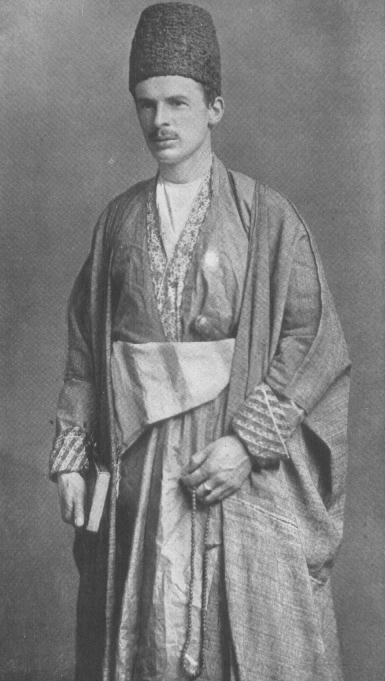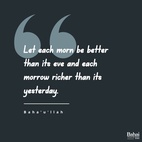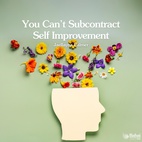The views expressed in our content reflect individual perspectives and do not represent the official views of the Baha'i Faith.
…the conscience of man is sacred and to be respected; and that liberty thereof produces widening of ideas, amendment of morals, improvement of conduct, disclosure of the secrets of creation, and manifestation of the hidden verities of the contingent world. – Abdu’l-Baha, A Traveller’s Narrative, p. 91.
All human beings are born free and equal in dignity and rights. They are endowed with reason and conscience and should act towards one another in a spirit of brotherhood. – The Universal Declaration on Human Rights, Article 1.
Who owns your conscience? Who controls what you think and say? Today, that depends on where you live and what government you live under. The Baha’i teachings maintain that every government must grant its citizens the control of their own individual conscience and the right to express it.
In 1886, at the age of 42, Abdu’l-Baha wrote a remarkable book called A Traveller’s Narrative. His groundbreaking volume chronicled the early history of the Babi and Baha’i Faiths and boldly asked the Shah of Persia to stop persecuting the Baha’is, extend rights to all its citizens, and cease attempting to interfere in matters of conscience and belief.
During that dark period in Persian history, the government and the clergy sanctioned and encouraged vicious and unrelenting persecution of minority religious groups, especially the Baha’is. In the four and a half decades prior to the publication of Abdu’l-Baha’s book, historians estimate that at least 20,000 Babis and Baha’is were executed by order of the government, or tortured and killed by murderous government- and clergy-supported mobs.

A Traveller’s Narrative, translated by the British scholar E. G. Browne and published in English in 1891, thus became one of the very first calls for human rights and freedom of conscience in the Eastern world, and a prophetic precursor of today’s Arab Spring freedom and human rights movement. The focus of the book—that the conscience of every person and their individual rights and freedoms must be guaranteed, respected and untrammelled by all governments on Earth—preceded the Universal Declaration on Human Rights by more than half a century. Its courageous call for unrestricted freedom of thought and conscience makes it not only one of the vitally important Baha’i scriptures, but also one of the foundational human rights documents of the modern world.
In the book, Abdu’l-Baha called the individual human conscience “sacred and to be respected.” He argued vociferously that cultures which practiced the principle of the freedom of conscience made much greater progress than those that tried to stifle and control the collective conscience, freedom of expression and religious liberty of their people. In the final section of the book, Abdu’l-Baha wrote rationally and persuasively about the freedom of conscience in England, and contrasted the growing power and progress of the British Empire with the diminished and dying influence and power of the Middle Eastern and Asian nations of the time:
…when they removed these differences, persecution, and bigotries out of their midst, and proclaimed the equal rights of all subjects and the liberty of men’s consciences, the lights of glory and power arose and shone from the horizons of that kingdom in such wise that those countries made progress in every direction; and whereas the mightiest monarchy of Europe had been servile to and abased before the smallest government of Asia, now the great states of Asia are unable to oppose the small states of Europe. – Ibid., p. 90.
[To insure] freedom of conscience and tranquility of heart and soul is one of the duties and functions of government, and is in all ages the cause of progress in development and ascendency over other lands. Other civilized countries acquired not this preeminence, nor attained unto these high degrees of influence and power, till such time as they put away the strife of sects out of their midst, and dealt with all classes according to one standard. All are one people, one nation, one species, one kind. The common interest is complete equality… Times are changed, and the need and fashion of the world are changed. Interference with creed and faith in every country causes manifest detriment, while justice and equal dealing towards all peoples on the face of the earth are the means whereby progress is effected. – Ibid., pp. 87-90.
Ultimately, though, Abdu’l-Baha’s reasoned political arguments against persecution and oppression preceded a more important and primarily theological thesis: that no king, ruler or political leader could ever hope to successfully change or suppress the conscience of even one person, since the human spirit and conscience belongs to the spiritual and not the material kingdom:
Convictions and ideas are within the scope of the comprehension of the King of kings, not of kings; and soul and conscience are between the fingers of control of the Lord of hearts, not of [His] servants. – Ibid., p. 91.
In making that argument, Abdu’l-Baha succinctly defined the Baha’i view on freedom of conscience; and placed this Baha’i principle directly in the spirit of the Western tradition rather than the more restrictive, authoritarian Eastern one. For a Faith that began in Persian, this was completely unprecedented. Unlike any other worldwide religion, the Baha’i Faith has, since its beginnings, fully endorsed the modern democratic principle of that unrestricted freedom. In fact, in his book Abdu’l-Baha asked a powerful rhetorical question about freedom of individual conscience—which only God can judge:
Moreover, if interrogation of conscience, which is one of the private possessions of the heart and the soul, take place in this world, what further recompense remains for man in the court of divine justice… – Ibid., p. 90.
Your conscience, the Baha’i teachings clearly say, belongs to you and you alone. As Abdu’l-Baha put it, your conscience “is one of the private possessions of the heart and the soul.” Baha’is strongly believe that no one else can condition it, control it or try to change it:
Let us also remember that at the very root of the Cause lies the principle of the undoubted right of the individual to self-expression, his freedom to declare his conscience and set forth his views. – Shoghi Effendi, Principles of Baha’i Administration, p. 43.
Just as in the world of politics there is need for free thought, likewise in the world of religion there should be the right of unrestricted individual belief. Consider what a vast difference exists between modern democracy and the old forms of despotism. Under an autocratic government the opinions of men are not free, and development is stifled, whereas in democracy, because thought and speech are not restricted, the greatest progress is witnessed. It is likewise true in the world of religion. When freedom of conscience, liberty of thought and right of speech prevail — that is to say, when every man according to his own idealization may give expression to his beliefs — development and growth are inevitable. – Abdu’l-Baha, The Promulgation of Universal Peace, p. 197.

















Comments
Sign in or create an account
Continue with Facebookor